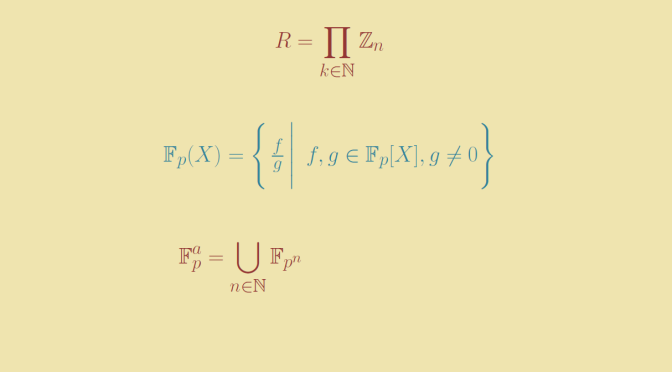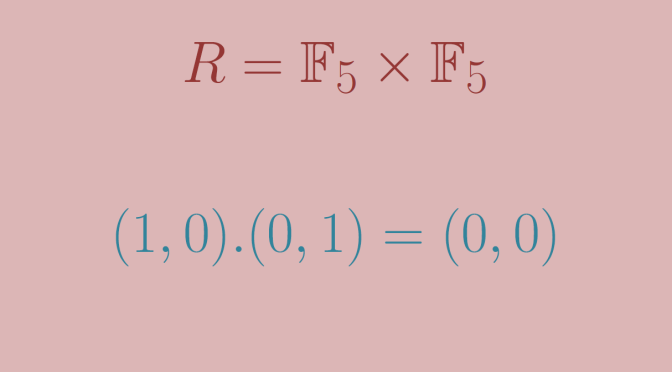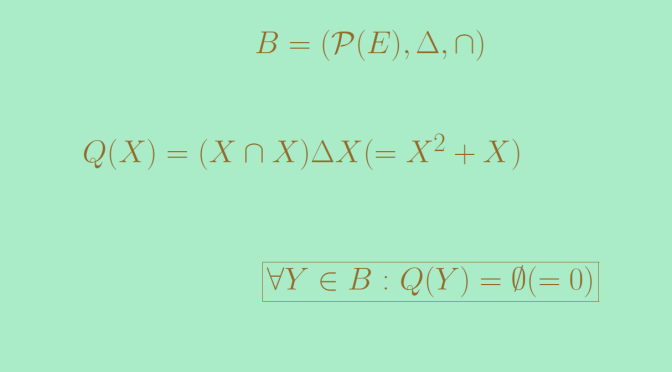Familiar to us are infinite fields whose characteristic is equal to zero like Z,Q,R or the field of constructible numbers.
We’re also familiar with rings having infinite number of elements and zero for characteristic like:
- The rings of polynomials Z[X],Q[X],R[X].
- The rings of matrices M2(R).
- Or the ring of real continuous functions defined on R.
We also know rings or fields like integers modulo n (with n≥2) Zn or the finite field Fq with q=pr elements where p is a prime.
We provide below examples of infinite rings or fields with positive characteristic.
Infinite rings with positive characteristic
Consider the ring Zn[X] of polynomials in one variable X with coefficients in Zn for n≥2 integer. It is an infinite ring since Xm∈Zn[X] for all positive integers m, and Xr≠Xs for r≠s. But the characteristic of Zn[X] is clearly n.
Another example is based on product of rings. If I is an index set and (Ri)i∈I a family of rings, one can define the product ring ∏i∈IRi. The operations are defined the natural way with (ai)i∈I+(bi)i∈I=(ai+bi)i∈I and (ai)i∈I⋅(bi)i∈I=(ai⋅bi)i∈I. Fixing n≥2 integer and taking I=N, Ri=Zn for all i∈I we get the ring R=∏k∈NZn. R multiplicative identity is the sequence with all terms equal to 1. The characteristic of R is n and R is obviously infinite. Continue reading Infinite rings and fields with positive characteristic



